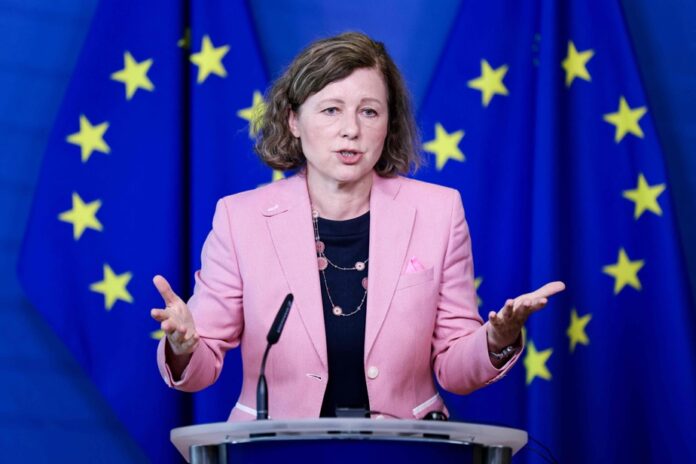(Brussels) Twitter chose “confrontation” by deciding to leave the EU’s code of practice against online disinformation, European Commission Vice-President Vera Jourova lamented on Monday.
The Commission announced ten days ago that the American social network controlled by Elon Musk was withdrawing from this voluntary code launched in 2018, which contains around forty commitments aimed in particular at better cooperating with fact checkers and depriving publicity sites distributing infox.
“We think it’s a mistake on Twitter’s part […] They chose confrontation,” Ms. Jourova, in charge of values and transparency at the Commission, told reporters.
Beyond the voluntary commitments currently in place, the fight against disinformation will become a legal obligation under the DSA (the European Digital Services Act) in force from 25 August.
If Twitter “wants to operate and make money in the European market, it will have to comply with the Digital Services Act,” Jourova said.
“The code is voluntary, but make no mistake: by leaving the code, Twitter is going to get more attention. Its actions and compliance with EU law (DSA) will be scrutinized closely, firmly and as a matter of priority,” she warned.
Twitter’s departure comes as no surprise to Brussels: since taking over the social network more than six months ago, billionaire Elon Musk has eased moderation on problematic content and appears to have amplified the voices of notorious propagators of misinformation on the platform.
The European code of best practices against online disinformation brings together around thirty signatories, giants such as Meta, Google, Microsoft or TikTok, but also smaller platforms, as well as advertising professionals, fact checkers and NGOs. . The signatories of the code had themselves participated in its drafting.
“A lot of people working at Twitter had collaborated with us […] It’s sad. Twitter had very competent and determined (employees) who understood that there must be a certain responsibility, an enhanced responsibility on the part of the platforms,” Ms. Jourova lamented.

